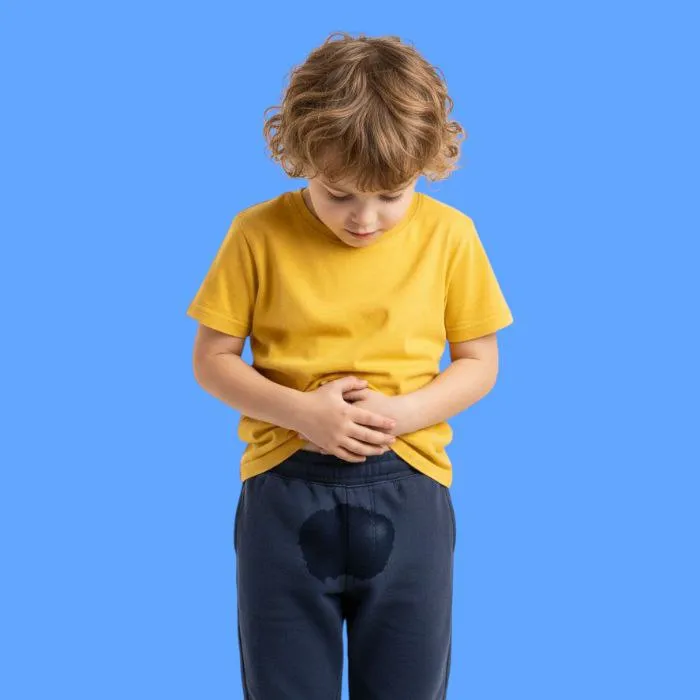What is bedwetting?
Bedwetting is one of the most common problems among children, and in rare cases, it can persist into adolescence or adulthood.
It occurs when a person loses control of their bladder during sleep or at specific times of the day, resulting in involuntary urine leakage.
Although it causes embarrassment and anxiety, early intervention helps in effective treatment.
What are the causes of bedwetting in children?
There are several common causes, including:
- Delayed development of the nervous system responsible for bladder control.
- Genetic factors if a parent experienced the same problem.
- Stress or psychological pressure, especially in children.
- Sleep disorders or excessively deep sleep.
- Urinary tract infections or diseases.
- Drinking fluids or caffeine right before bedtime.
What are the common symptoms of bedwetting?
There are several common symptoms that a patient may experience, including:
- Wetting the bed without realizing it.
- Difficulty waking up when the bladder is full.
- Frequent urination during the day or while sleeping.
- Feeling embarrassed or anxious due to repeated incidents.
When should you see a doctor?
It is recommended to consult a doctor in the following cases:
- Urinary incontinence persists after the age of seven.
- Other symptoms appear, such as burning or pain during urination.
- Involuntary urination occurs after a period of dryness.
- There is a family history of similar cases.
- The patient's psychological state is noticeably affected.
How is urinary incontinence diagnosed in children?
The condition is diagnosed through several precise medical methods, such as:
- Urine analysis to detect infection or inflammation.
- Clinical examination to assess bladder condition.
- Abdominal and pelvic ultrasound.
- Recording urination habits and frequency.
- Neurological tests if a neurological disorder is suspected.
What are the treatment options for urinary incontinence?

There are several treatment methods, including:
- Bladder training to gradually delay urination.
- Reducing fluid intake before bedtime.
- Behavioral therapy and using stimulation schedules for children.
- Medications that reduce overactive bladder.
- Psychotherapy for anxiety or trauma.
Can bedwetting be cured?
Complete recovery is possible in most cases by following appropriate medical guidelines, such as:
- Adhering to prescribed medication regularly.
- Practicing bladder control exercises.
- Avoiding fluids well before bedtime.
- Obtaining ongoing psychological and family support.
- Regular follow-up appointments with a doctor to monitor progress.
What are some tips for preventing bedwetting in children?
There are several tips for preventing the condition, including:
- Avoiding caffeinated drinks before bedtime.
- Training the child to use the toilet regularly.
- Maintaining regular sleep patterns and avoiding late nights.
- Maintaining emotional well-being and family support.
- Monitoring fluid intake throughout the day.
What are the potential complications of bedwetting?
Some complications may occur if treatment is neglected, such as:
- Low self-esteem, especially in children.
- Psychological problems such as anxiety or excessive shyness.
- Skin infections due to frequent wetting.
- Sleep disturbances and nighttime discomfort.
Frequently Asked Questions about Bedwetting
Is bedwetting hereditary?
Yes, it can be hereditary in some cases.
Does bedwetting disappear over time?
In most cases, it gradually improves with age and appropriate treatment.
Can it recur after recovery?
Yes, if the person experiences severe psychological stress or a physical illness.
Are medications alone sufficient for treatment?
No, they are part of the treatment and should be combined with behavioral therapy.
Does bedwetting affect the kidneys?
This rarely happens, except in cases neglected for extended periods.
Article Summary
Bedwetting is not a defect or a sign of weakness; rather, it is a medical condition that can be easily managed once its causes are understood.
Psychological support and family cooperation play a significant role in treatment, and with proper medical follow-up, the patient can overcome the problem and fully regain their self-confidence.